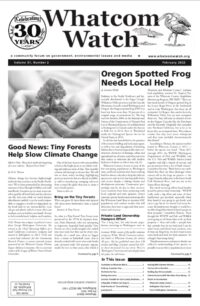by Dan Klefstad
Before the ink was dry on the U.S. Constitution, someone asked Ben Franklin what he and the other founders created. “A republic, if you can keep it” is his reputed reply.
Two hundred thirty-five years later I have good news, but it comes with an asterisk. The Constitution continues to protect your right to express yourself through words and other peaceful means. But we may not always have this right. Last year’s insurrection at the Capitol propelled us to the edge of a new nation where enraged people push aside and even kill those who disagree with them. Moments like this should cause us to pause and reflect on what Democracy is, what could happen if it disappears, and what we writers should do.
Democracy is about more than freedom or individual protections. It’s a shared understanding that words, wisely chosen, should inform how we behave toward each other. Of course, our nation was born out of war. But when Thomas Jefferson drafted the Declaration of Independence, he felt the rebellious colonies had an important obligation to meet, and this should be a guiding principle of the new nation: … a decent respect for the opinions of mankind requires that they should declare the causes which impel them to the separation.
In the end, guns and bayonets became necessary. But the principles outlined in the Declaration looked ahead to the post-war period when the Articles of the Constitution would be debated. Words allowed our nascent country to claim the legitimacy of a republic.
Not All Words Are Equal
At this point, it’s important to note that not all words share this end. The leaders of Nazi Germany also used words, though theirs were motivated by hate. What they said about Jews, gay people, Roma, communists, and others was repeated so often they began to sound like truth. Their propaganda spread unchecked because they allowed no counter argument and anyone who spoke out was imprisoned or killed.
Decades later, Donald Trump announced his candidacy for president by trying to dehumanize those crossing our southern border, calling them criminals and rapists. Then, bizarrely, he followed with an assumption that some of these immigrants were “nice people.” This apparently improvised bit proved right away that Trump’s political speech-making was incoherent and that he didn’t care. But he knew his audience was hungry for certain words and phrases. Tossing red meat like “fake news” and “lock her up” fed his angry followers who, in turn, fed his ambitions to stay in power.
You might point out that Trump’s most ardent followers have a reason for their vitriol and their preference for violence over debate. I invite you to respond with your own article which I promise to read. But the scope of this piece is not about how we got here. It’s about where we are now and how to move forward.
Demagogues Waiting in the Wings
As I write this, I hear speeches condemning the Capitol insurrection, one year ago, and I realize how fortunate I am to have the freedom to write this article. History has proven that my right to do this, and yours to read it and write back, has always been tenuous. Demagogues are always waiting for the right conditions to silence those who argue for the truth, for facts, and the ethical treatment of the most vulnerable among us.
I hope you share my belief that speaking the truth and engaging in difficult debates is more than a right. It’s what makes us human. And, if our republic is to survive, we need to defend it with our first civilized invention: language.
Without language, we couldn’t articulate truth amid a hailstorm of lies. Since Trump announced his candidacy in 2015, we have faced a consummate liar who boils down words until they can only be used as weapons. His repetition of falsehoods about a rigged election so infected his supporters that another civil war seems possible. If this sounds like hyperbole, talk to an election supervisor; many still face death threats for certifying results that went against Trump.
It took a year for President Biden to call out his predecessor. And it took a year for me to finally put in print what I should’ve said long ago. Writers and others who work with words need to stand up for the truth before it’s too late — before articles like this become impossible to find because the truth-tellers have been silenced.
If our republic is to survive, we need to defend it with our first civilized invention: language.
Writers and others who work with words need to stand up for the truth before it’s too late.
Democracy is a shared understanding that words, wisely chosen, should inform how we behave toward each other.
History has proven that my right to write this, and yours to read it and write back, has always been tenuous.
___________________________
Dan Klefstad is a longtime radio host and newscaster at NPR station WNIJ. His latest novel, “Fiona’s Guardians,” is about humans who work for a beautiful manipulative vampire. His article, “A Republic — if your words can keep it” is his first political essay. He writes in DeKalb, Illinois. You can reach him via email: danklefstad@gmail.com.




























